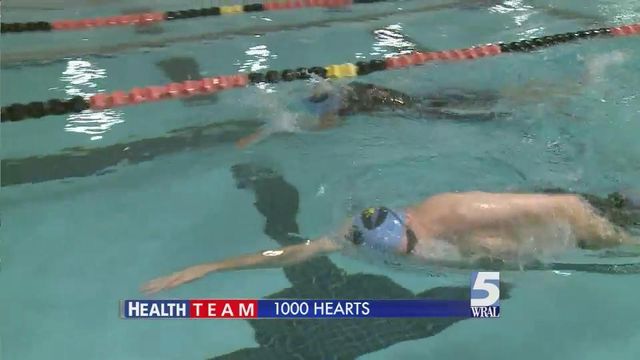Duke Hospital heart transplant program reaches milestone
The hospital's Heart Transplant Program has reached a milestone of 1,000 transplants in 29 years. The program administrators have invited more than a hundred past donor recipients to a celebration Sunday.
Posted — UpdatedBrian Barndt, 45, loves to swim.
He competes and has won medals in the U.S. Transplant Games. It's a great accomplishment for a man who developed congestive heart failure at 22.
His disease progressed to the point that he needed a new heart in 2005.
“There was no other option,” Barndt said. “There was nothing else that could save my life.”
Barndt received a donor’s heart at Duke Hospital. The hospital’s Heart Transplant Program has reached a milestone of 1,000 transplants in 29 years. The program administrators have invited more than a hundred past donor recipients to a celebration Sunday.
Several advances helped increase the number of patients eligible for a donor heart, including improved immuno-suppressant drugs to prevent organ rejection. Also, a clear definition of "brain death" for potential donors was needed. Brain death is a brain injury beyond which a patient can recover from.
Duke cardiologist Dr. Joseph Rogers said defining brain death “allowed us to begin having conversations with families about organ donation that was much more meaningful.”
According to Duke heart transplant specialist Dr. Chet Patel, improved techniques for matching donors and recipients have expanded the ability for Duke to find suitable donor hearts for its patients.
“Despite all the innovations in terms of donor and recipient matching, we still have a deficit in the number of organs that we can get every year,” said Patel.
Barndt only had to wait seven weeks for a suitable donor heart. He's making the most of it by staying active.
• Credits
Copyright 2024 by Capitol Broadcasting Company. All rights reserved. This material may not be published, broadcast, rewritten or redistributed.





